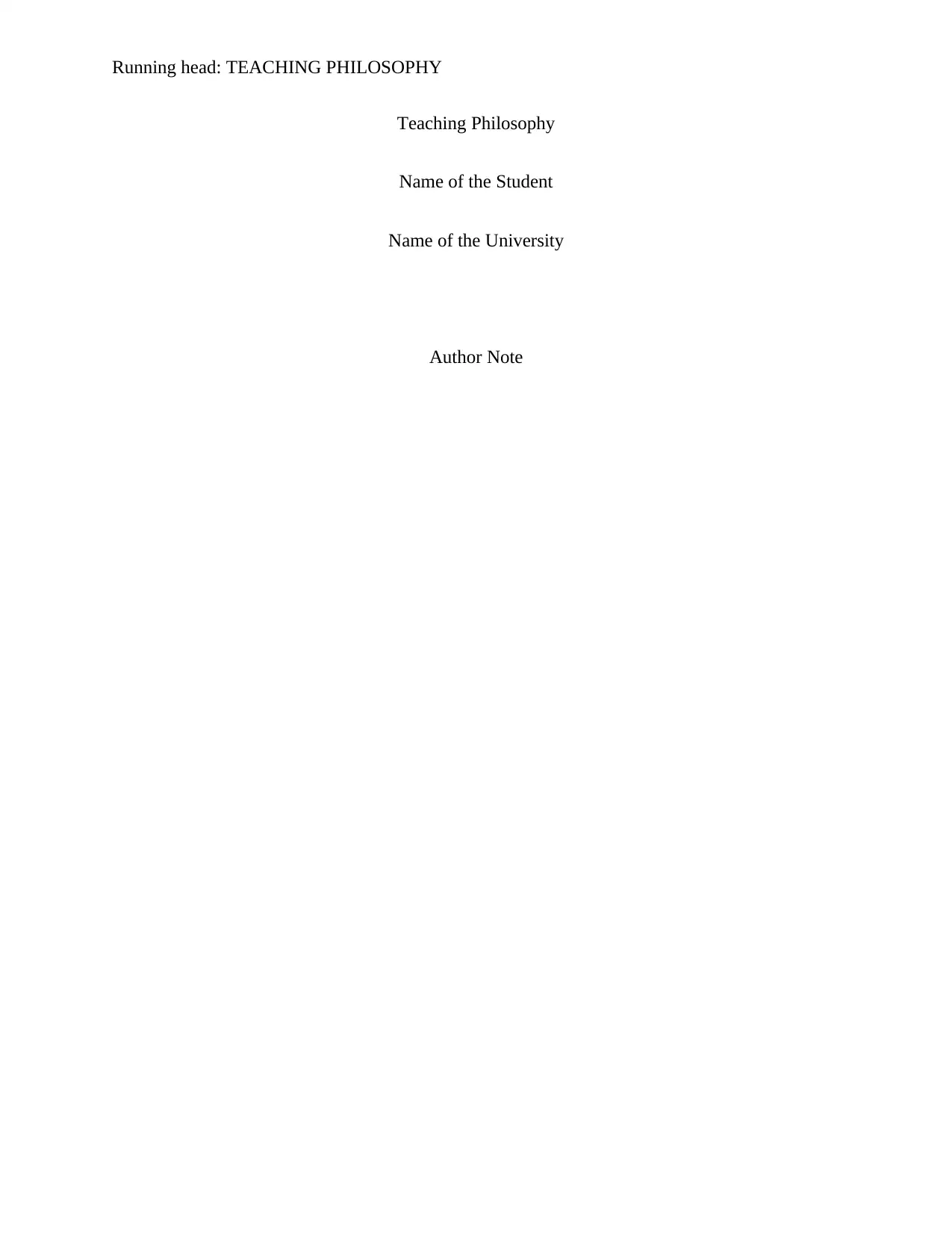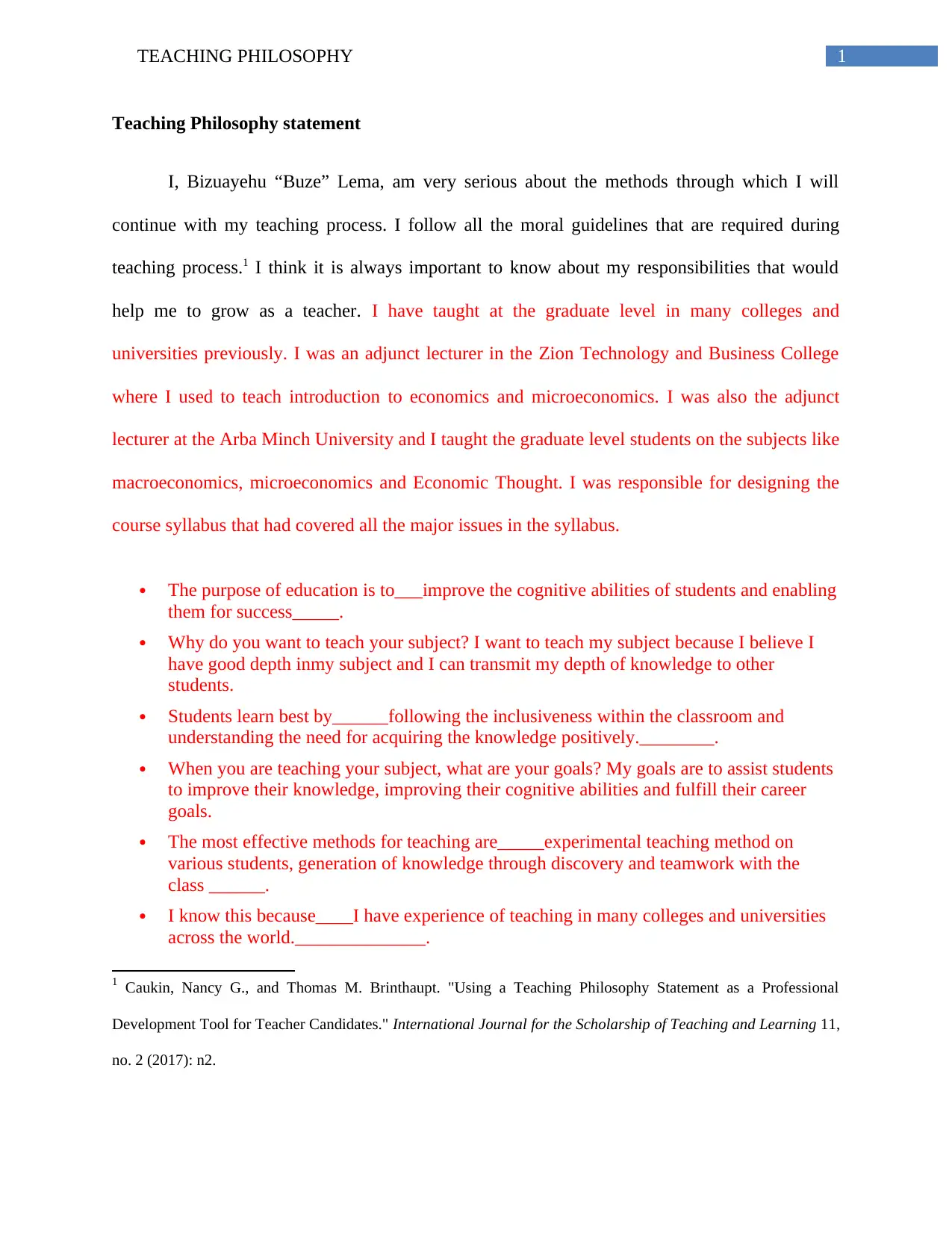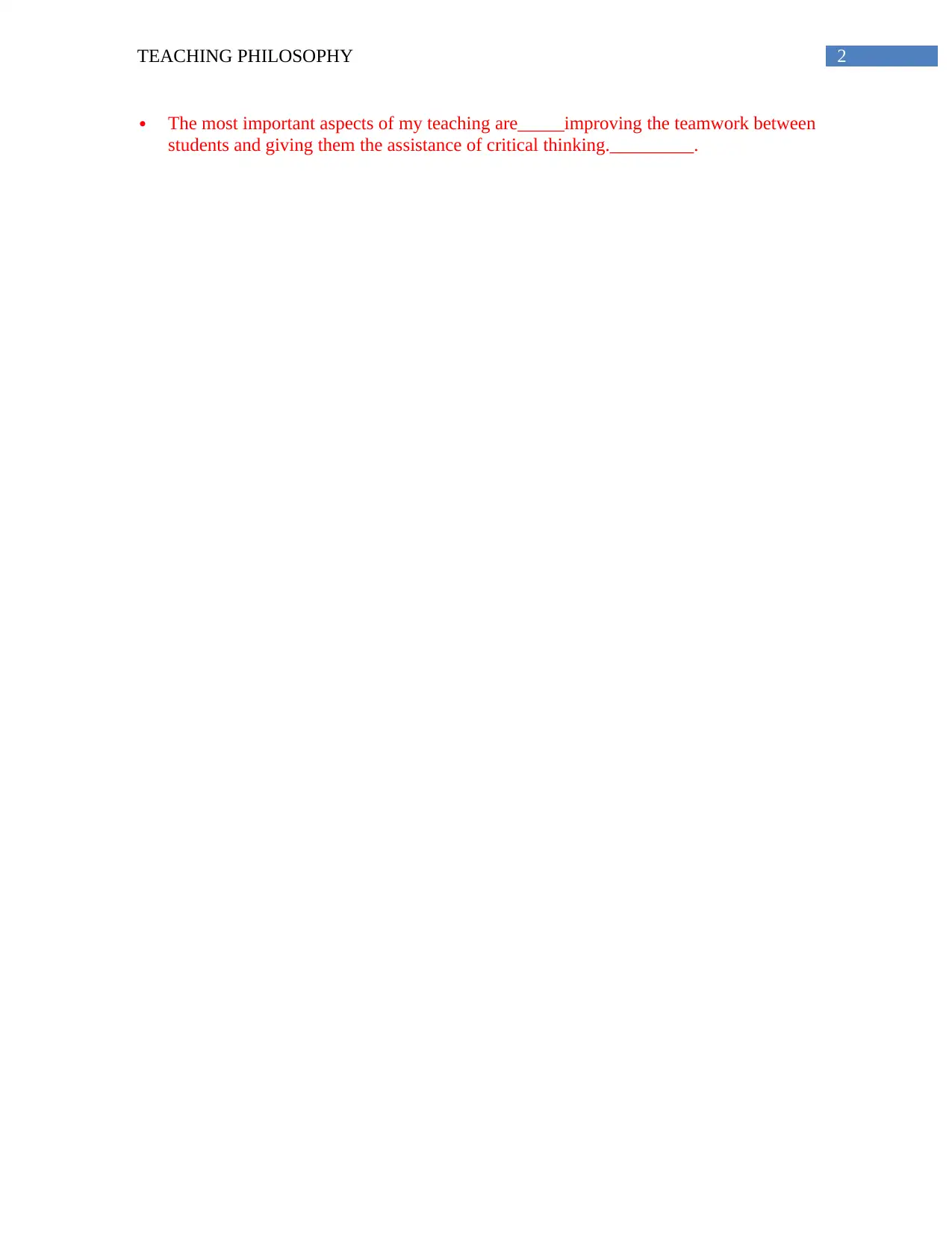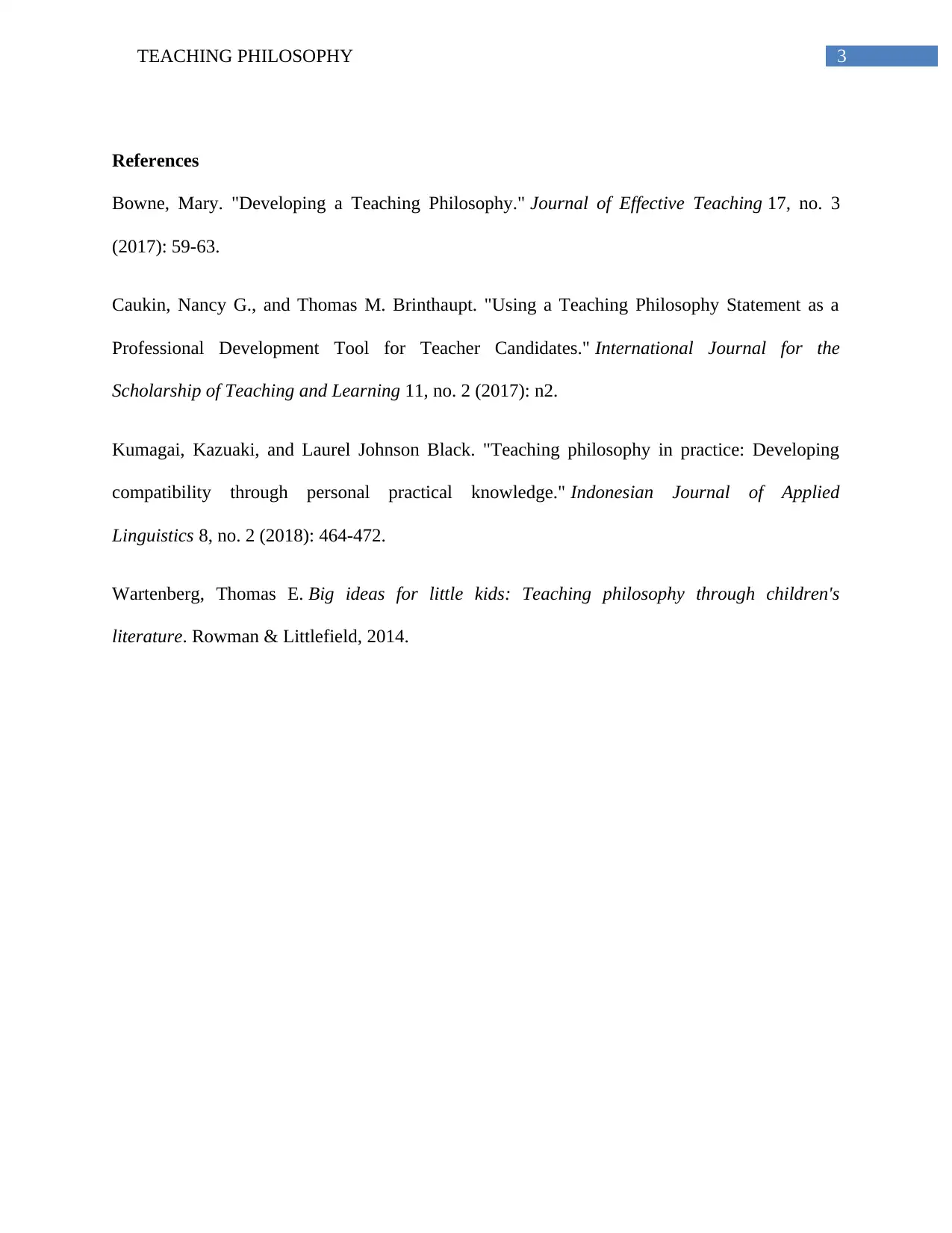Teaching Philosophy Statement for Higher Education Course Work
VerifiedAdded on 2022/08/24
|4
|469
|30
Essay
AI Summary
This document presents a teaching philosophy statement by Bizuayehu “Buze” Lema, outlining his approach to teaching. The statement covers his educational background, including experience as an adjunct lecturer at various universities teaching economics. It addresses his teaching goals, which include improving students' cognitive abilities and career prospects. The philosophy emphasizes the importance of inclusive classrooms, experimental teaching methods, and teamwork. The statement also references key aspects of his teaching, such as improving teamwork and fostering critical thinking. The document also includes a professional summary and details of his teaching experience and skills.
1 out of 4










![[object Object]](/_next/static/media/star-bottom.7253800d.svg)